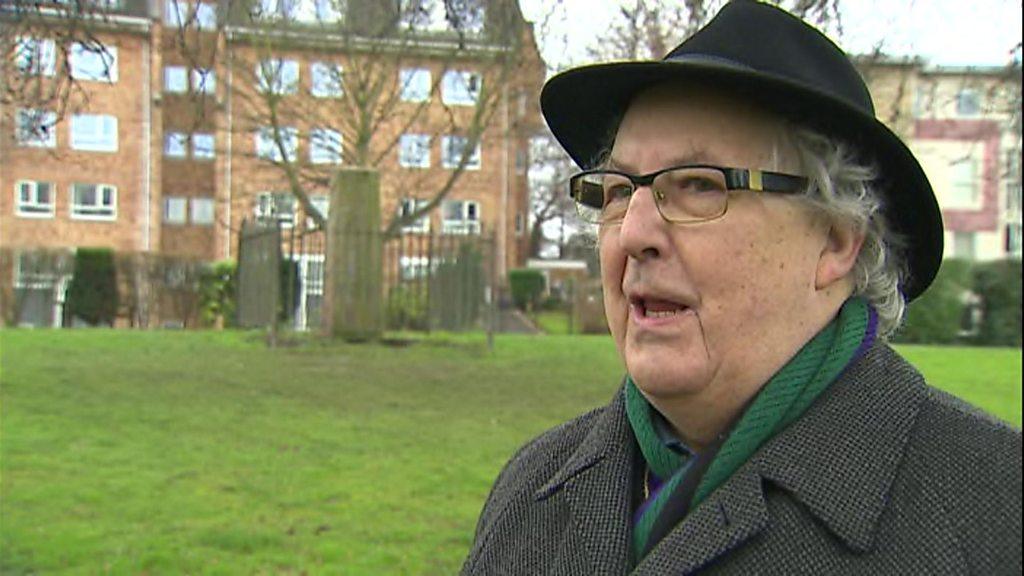New chair marks Welsh WW1 poet Hedd Wyn's centenary
- Published
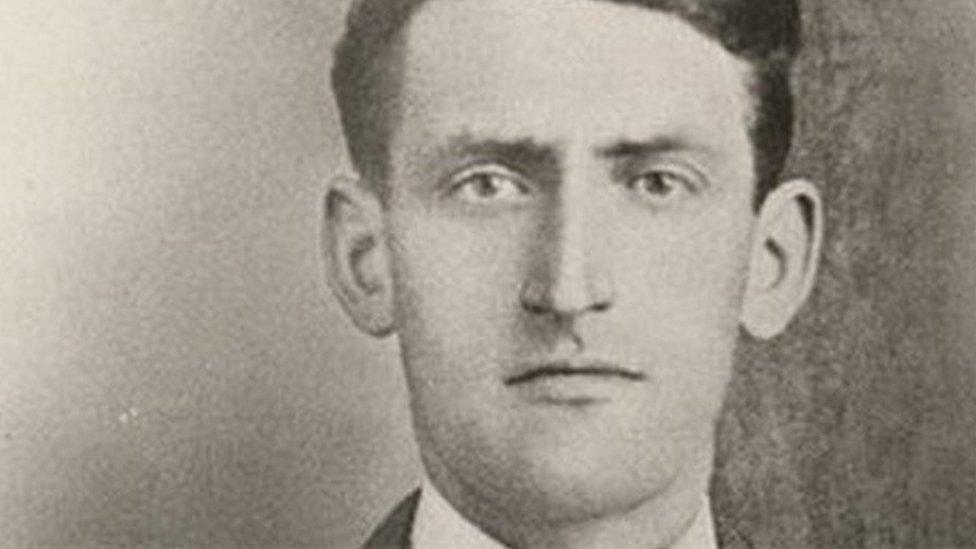
Welsh societies in Merseyside and the Flanders region of Belgium are marking the centenary of the death of World War One poet Hedd Wyn.
He was killed on the first day of the Battle of Passchendaele on 31 July 1917.
Some weeks later his poem won the prestigious chair prize at the Welsh National Eisteddfod cultural festival held in Birkenhead, Wirral.
A new chair will be presented at an event to mark the 100th anniversary.
Hedd Wyn, the bardic name of Ellis Humphrey Evans, born on 13 January 1887 in Gwynedd, was already a poet of some renown.
His death represented so many who marched off to war never to return, according to the Merseyside Welsh Heritage Society and the Welsh National Memorial and Hedd Wyn Society in Flanders.
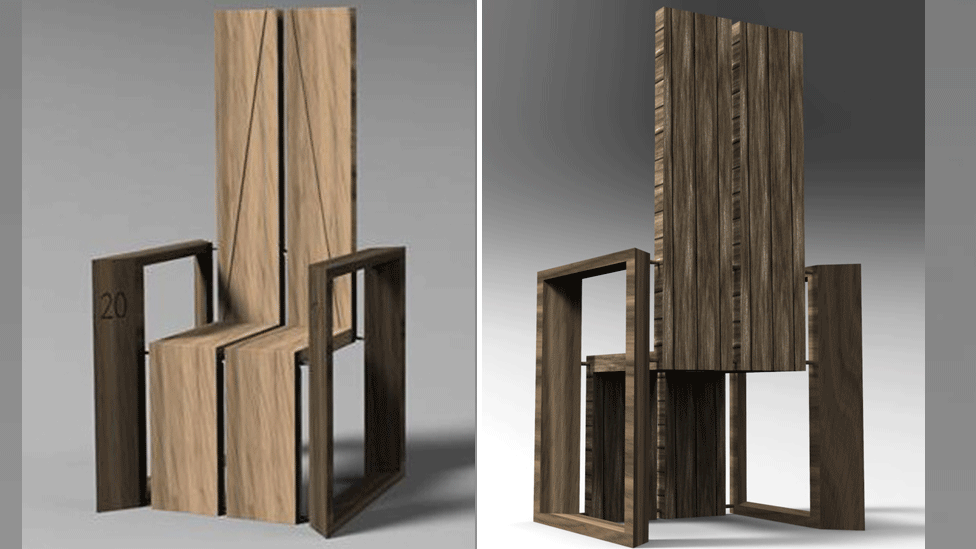
Designs show the front and rear view of the new chair
In September, Hedd Wyn and others from Wales who fell in battle will be remembered in a poetry and arts festival to be held in Birkenhead Park.
A stone marks the spot where the eisteddfod was held 100 years ago and where Hedd Wyn won his posthumous prize - the Black Chair of Birkenhead.
The centrepiece of this year's event will be the awarding of a new chair designed by students in Flanders, a gift from the Flemish Hedd Wyn Society - a group of people who honour his memory.
Dr D Ben Rees, chairman of the Merseyside Welsh Heritage Society, said the 1917 eisteddfod had been a "huge occasion" due to the numbers of Welsh people living in the area.
"Wales was very much part of our heritage here on Merseyside," he said.
The society is to restore the stone and incorporate details of Hedd Wyn.
Dr Rees said the festival was being used to "remind people of the sacrifice made by Welsh lads from the churches and chapels on Merseyside".
About 220 men, members of a Welsh chapel in Bootle, fought in World War One, he said.
Dr D Ben Rees: 'Wales part of our heritage here on Merseyside
The initial intention had been to donate the Hedd Wyn Centenary Chair to this year's National Eisteddfod to be held on Anglesey, but that did not prove possible.
The design has come from a competition involving furniture design students at the Thomas More University in Mechelen, between Brussels and Antwerp.
The chair was originally planned to be a unique commission but, after learning about it, the Flemish government asked for a second to be made which it plans to give as a gift to the Welsh Government.
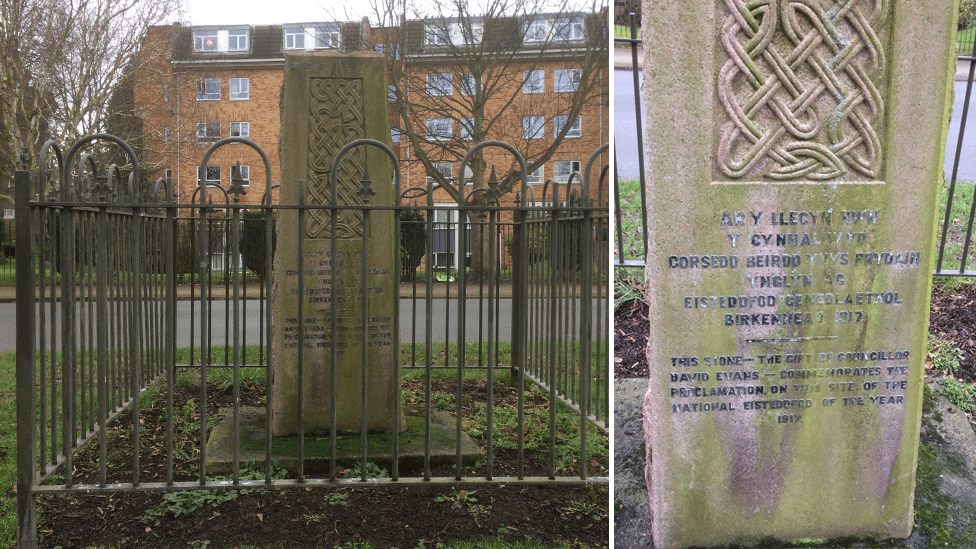
Stone in Birkenhead Park marks the eisteddfod in 1917
Erwin Ureel, from the Welsh National Memorial and Hedd Wyn Society in Flanders, said Hedd Wyn's Black Chair was "highly symbolic" because it was designed by a Flemish furniture maker living as a refugee in Birkenhead.
"We thought at the centenary this is a perfect moment to more or less repeat the story and bring another chair to Wales as Hedd Wyn's Centenary Chair," he said.
The chairs will be made from railway sleepers which were found buried in a farmer's field near the battlefield.
Hedd Wyn died at a crossroads just outside the Flemish town of Langemark.
The place is known now as the site of the Dragon Memorial, dedicated to all those from Wales who served in World War One.
He is buried not far away at Artillery Wood Commonwealth War Graves Cemetery.
Both locations will be the focus of events in July to mark the centenary of his death.
Mr Ureel said: "Hedd Wyn is a symbol for all the Welsh men who fought in the area.
"In commemorating Hedd Wyn we are commemorating all the people of Wales who were here with us in Flanders and fought here nearly 100 years ago."
- Published16 August 2014
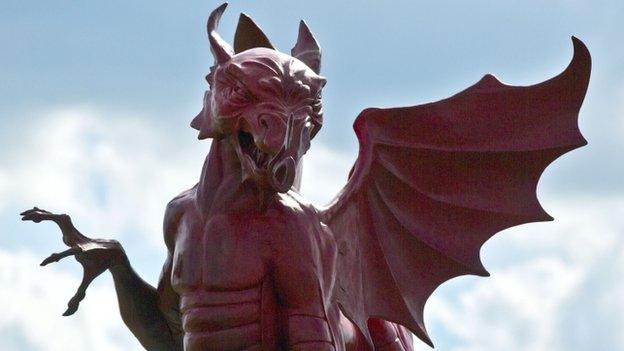
- Published23 June 2016

- Published13 January 2017
